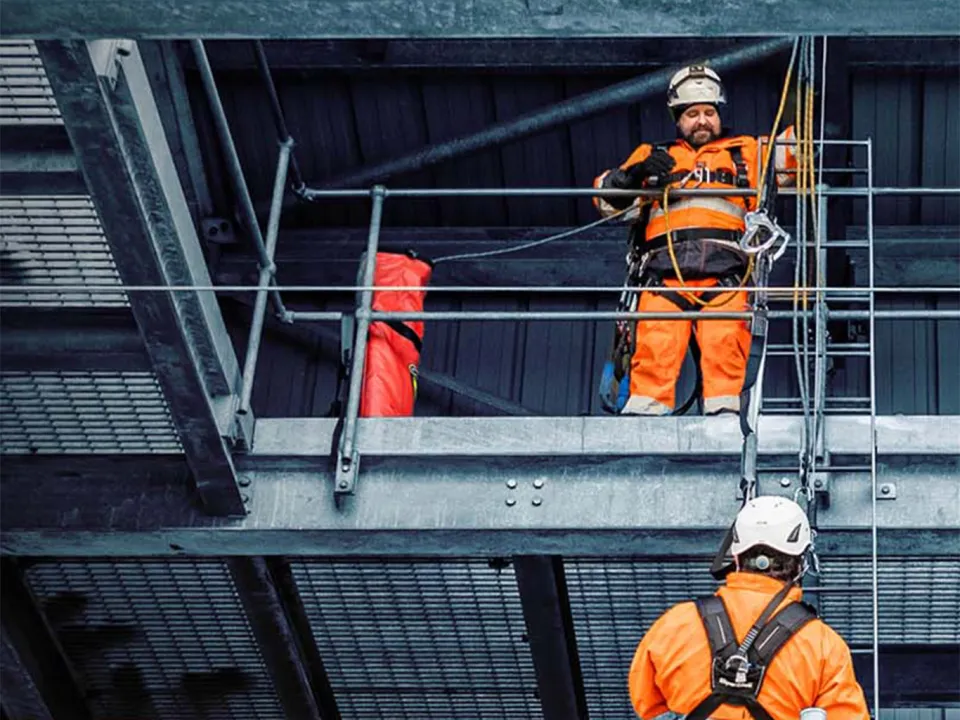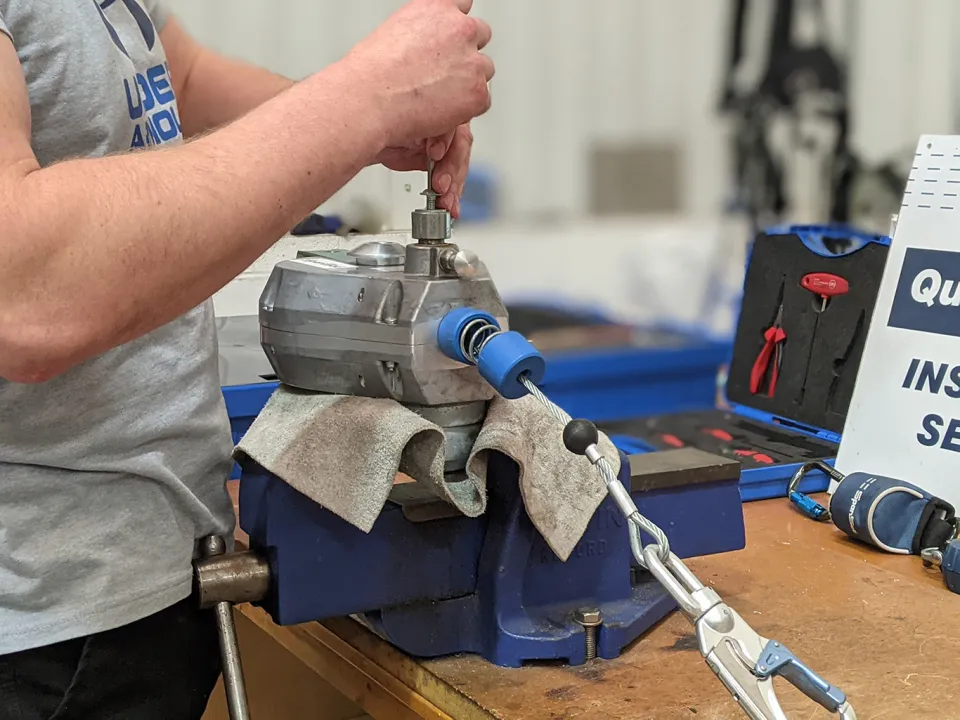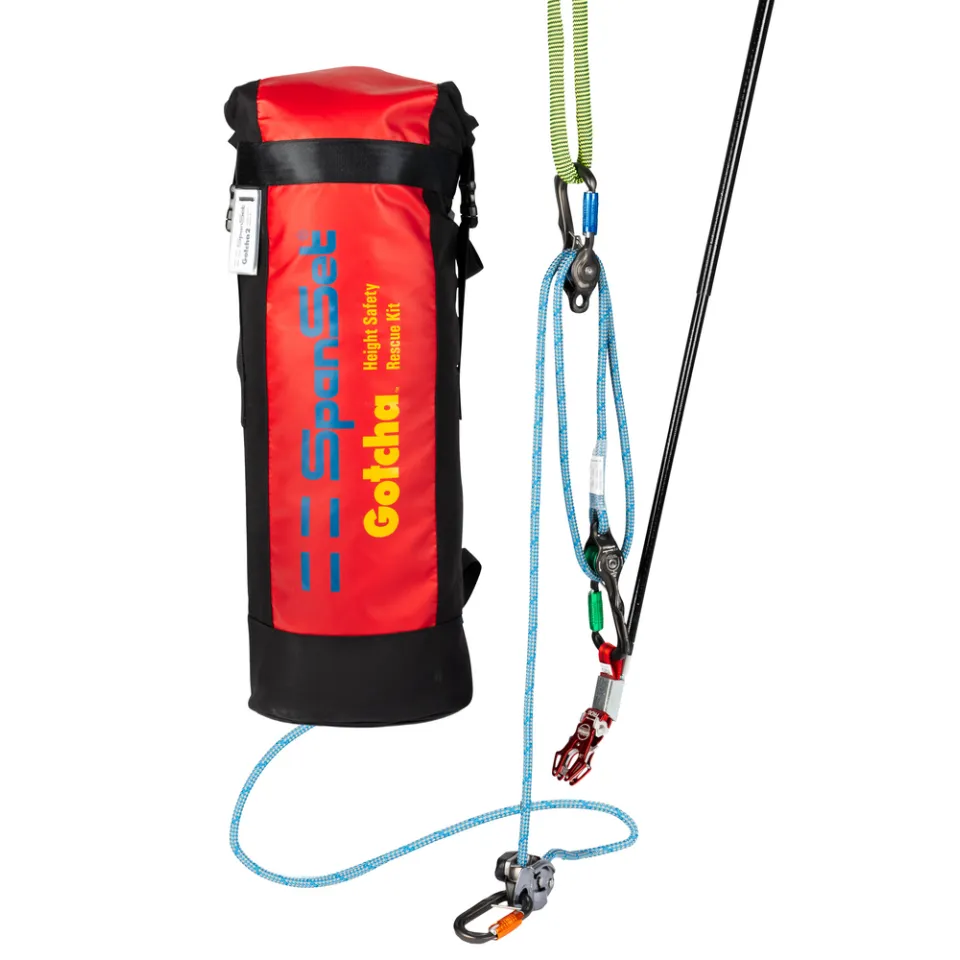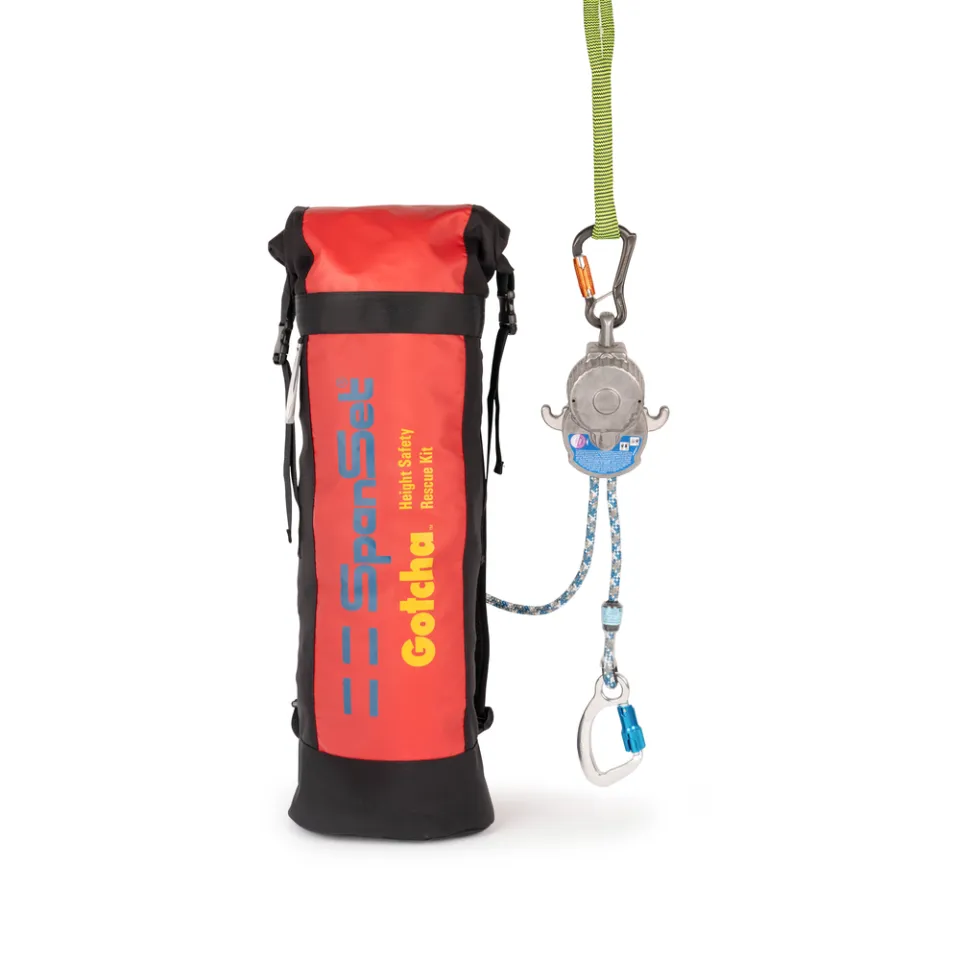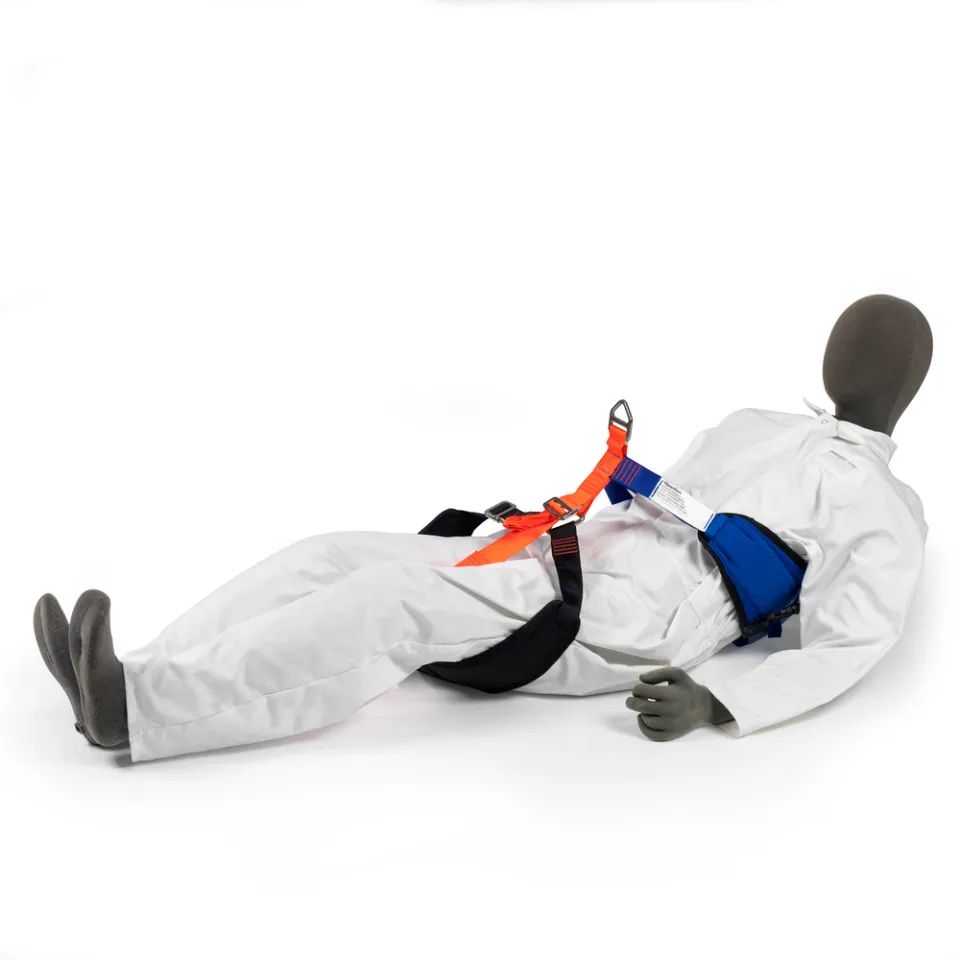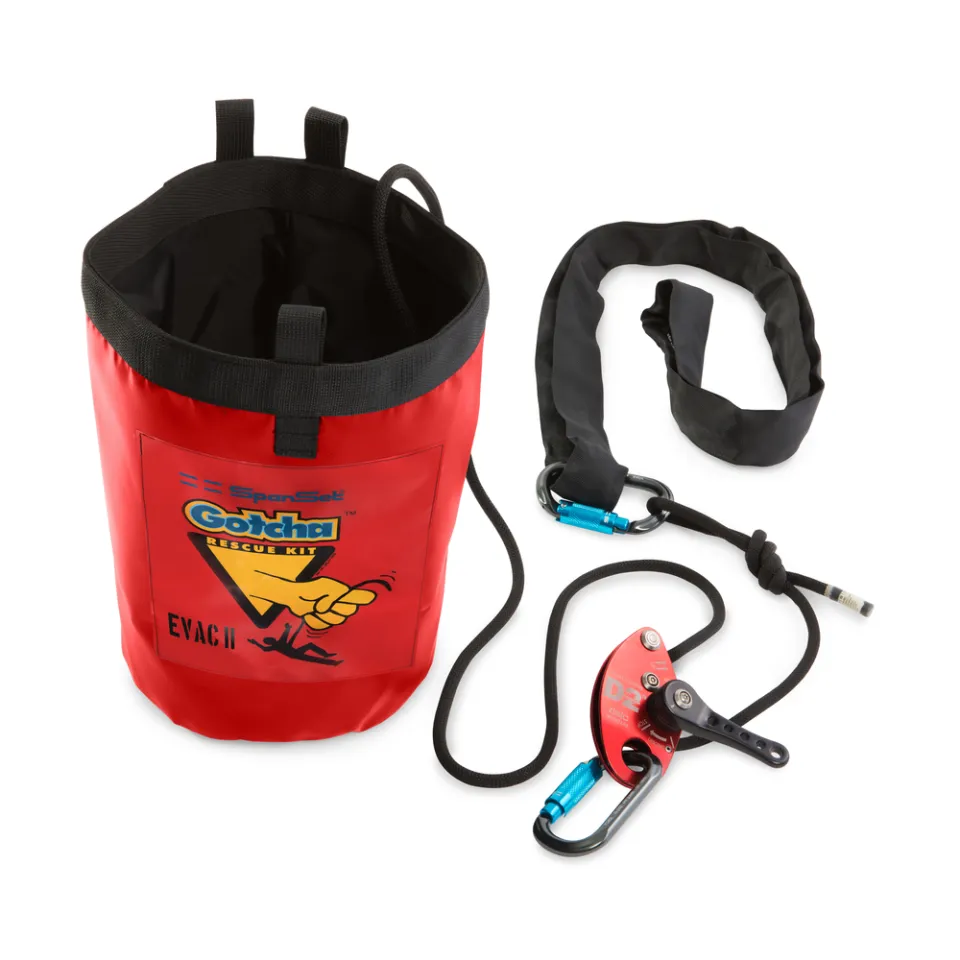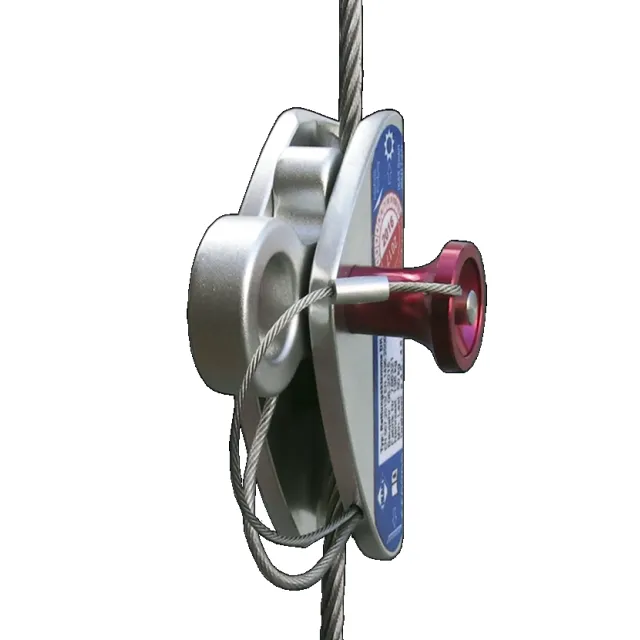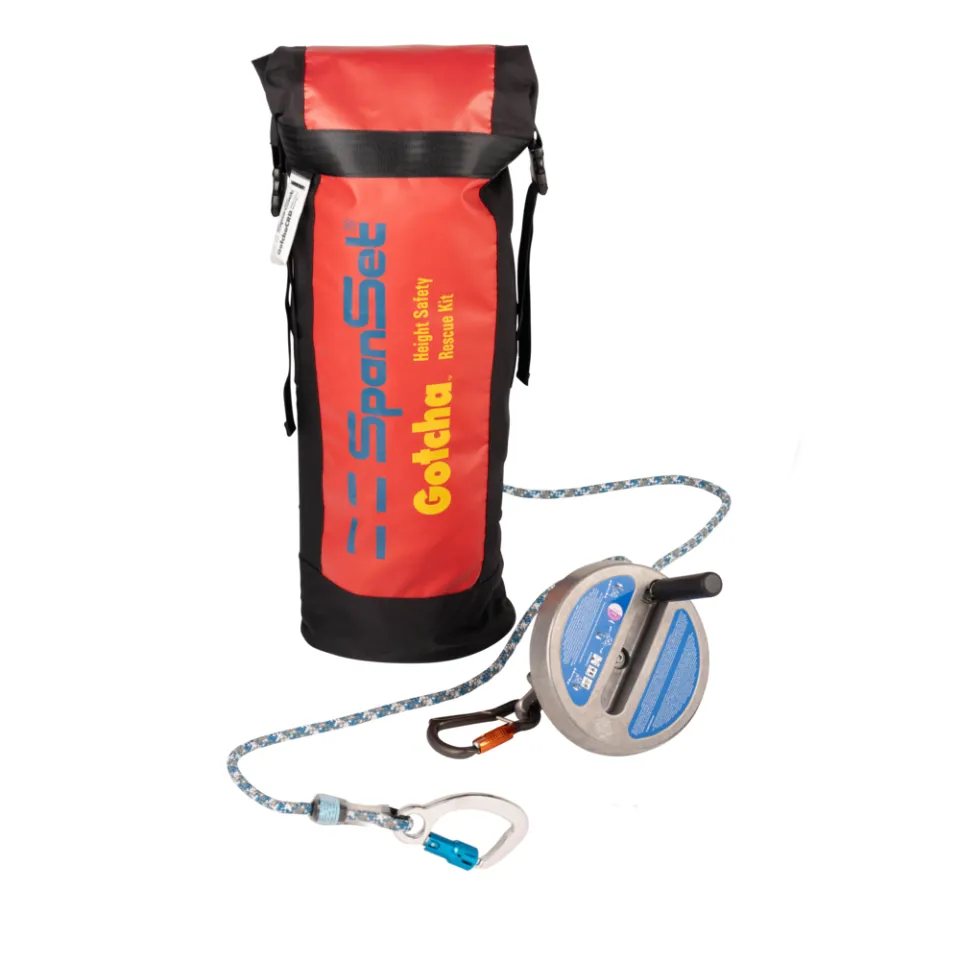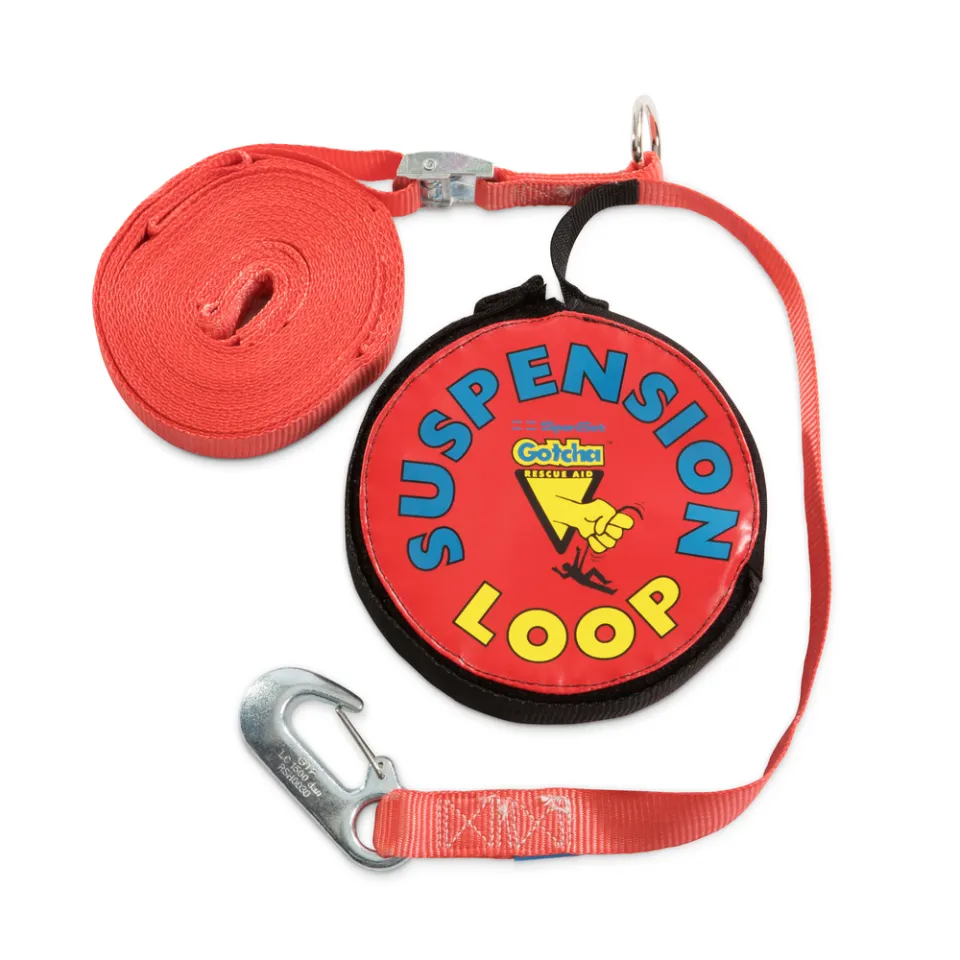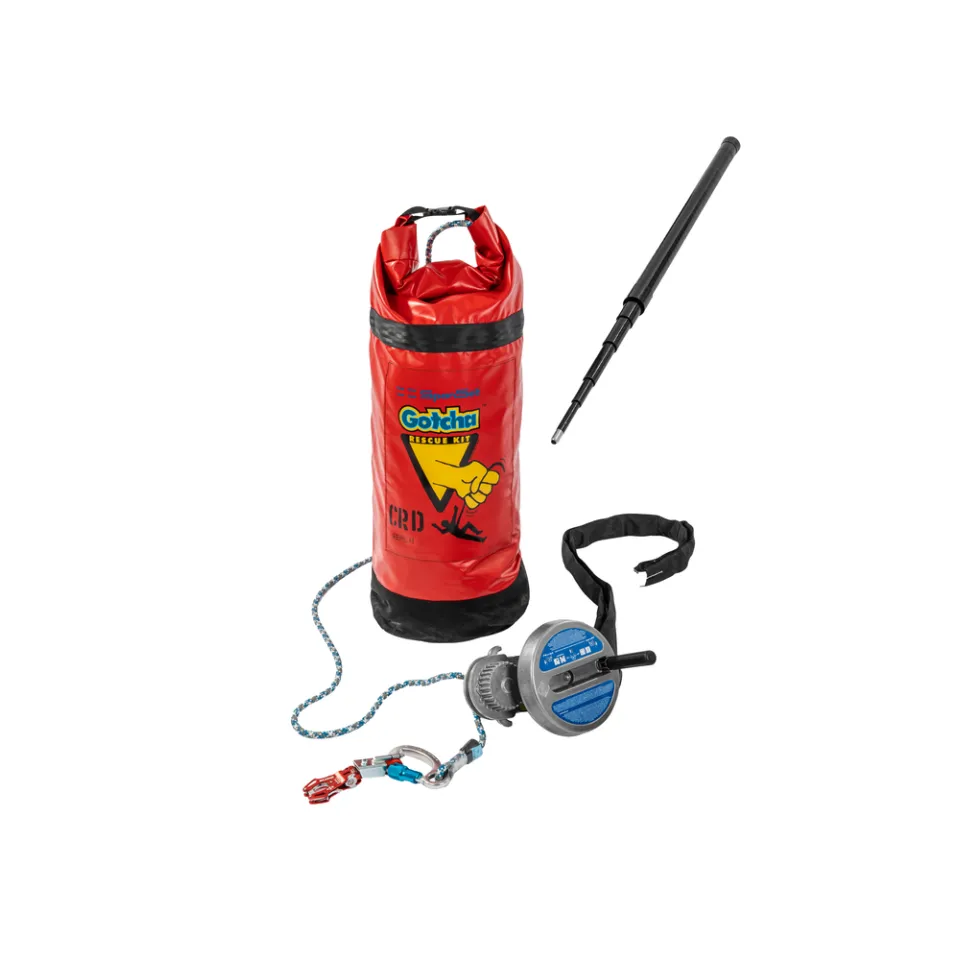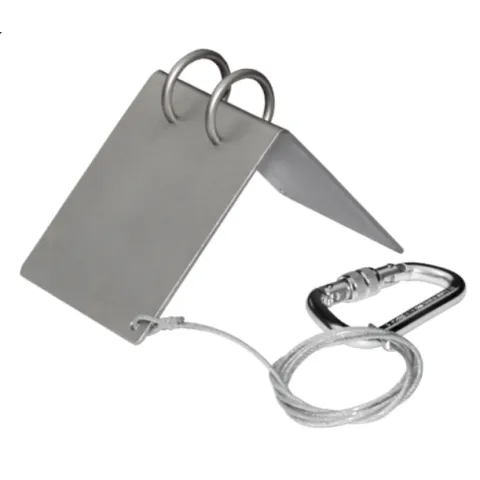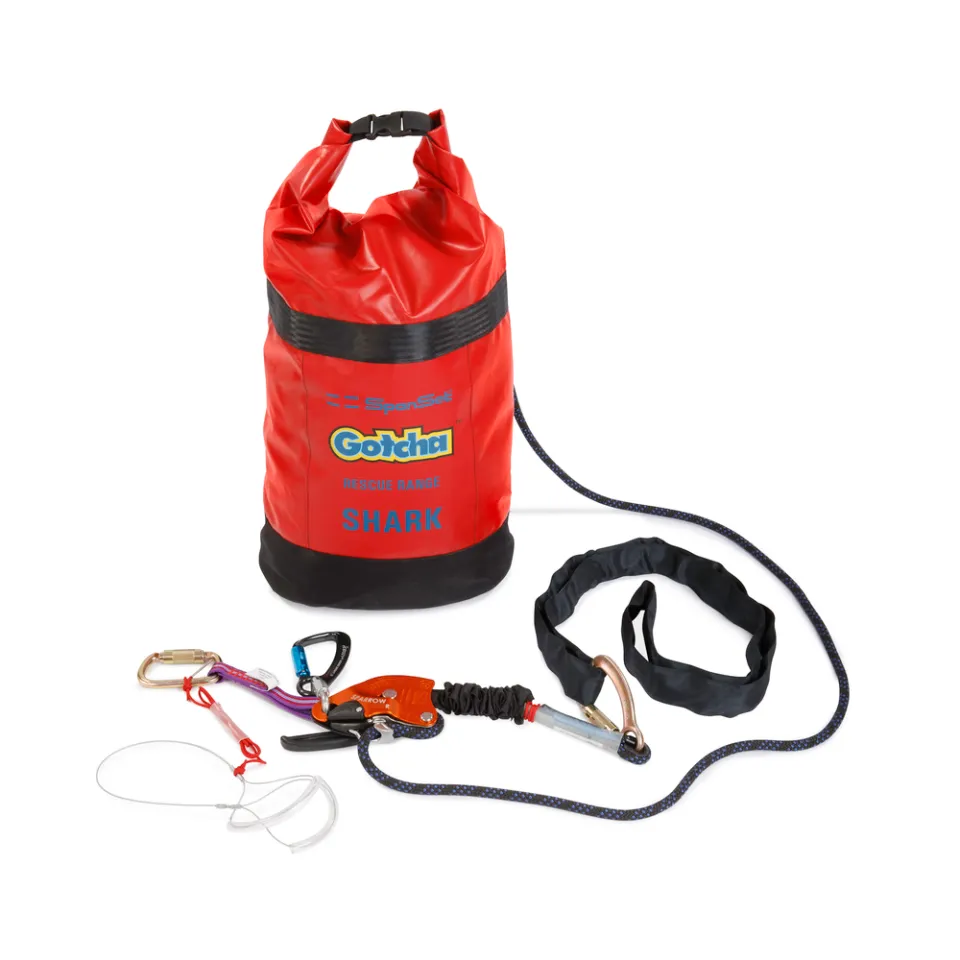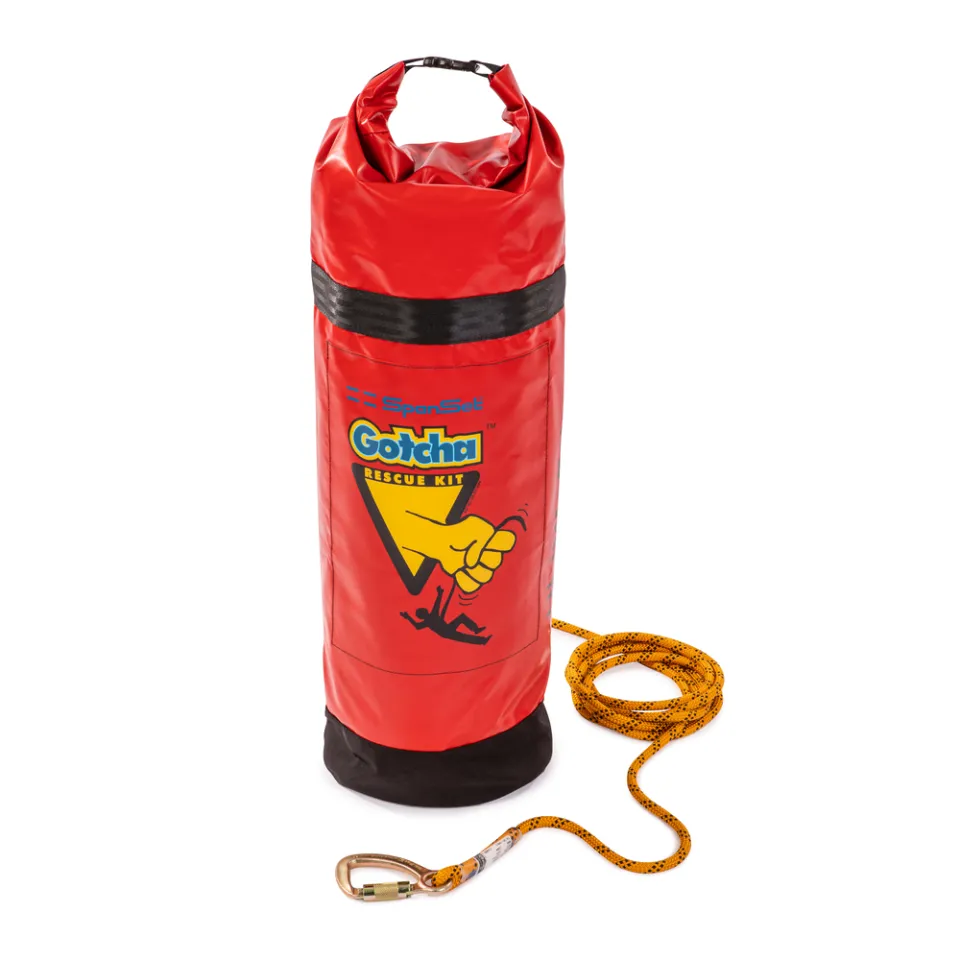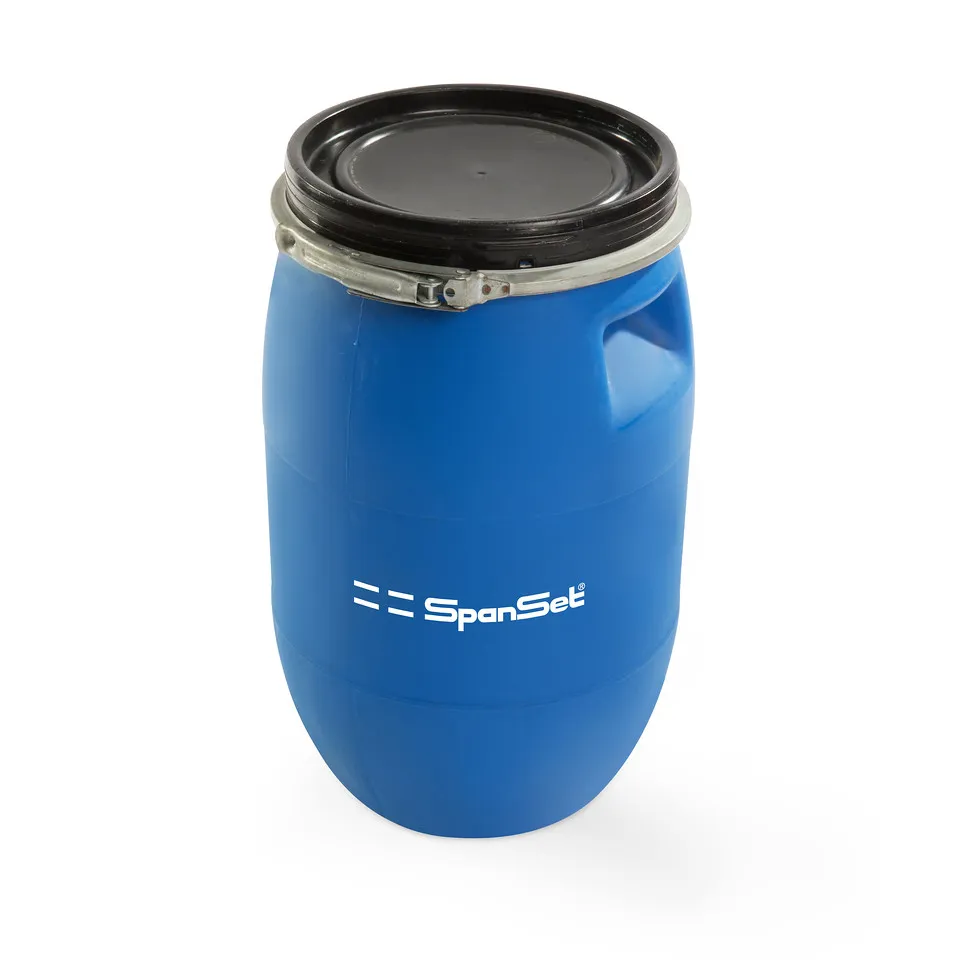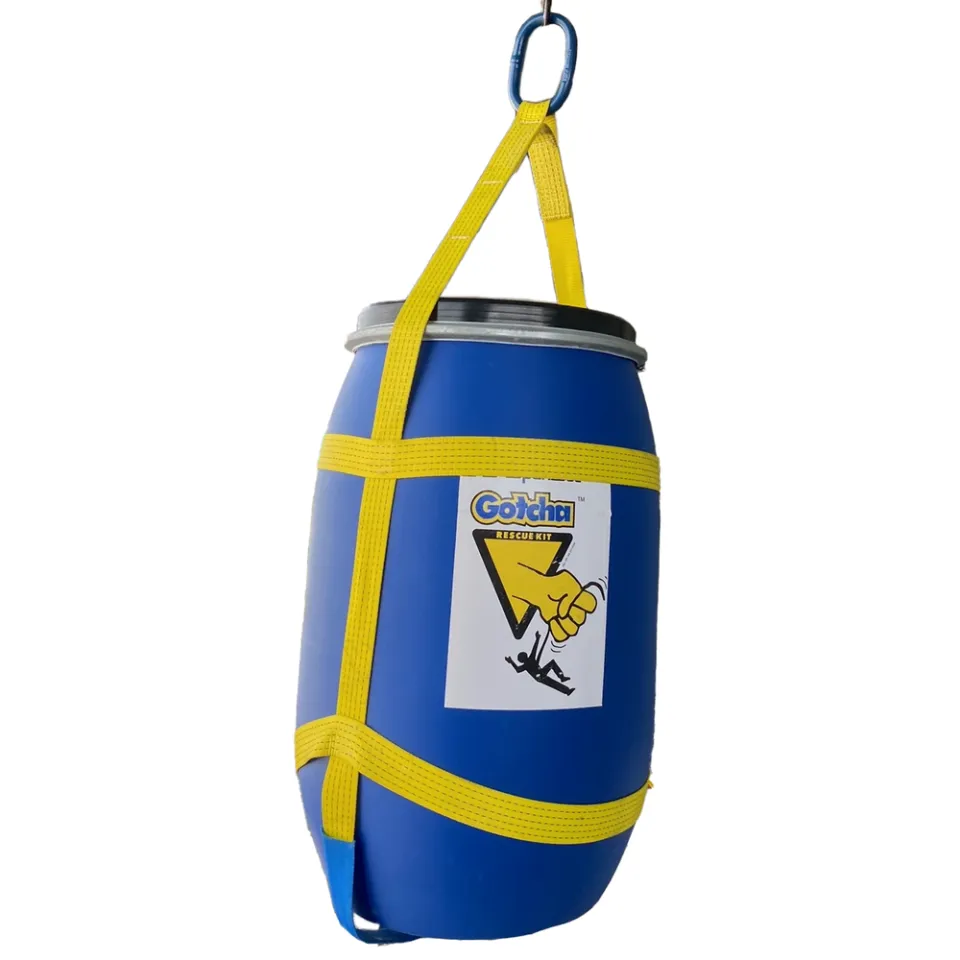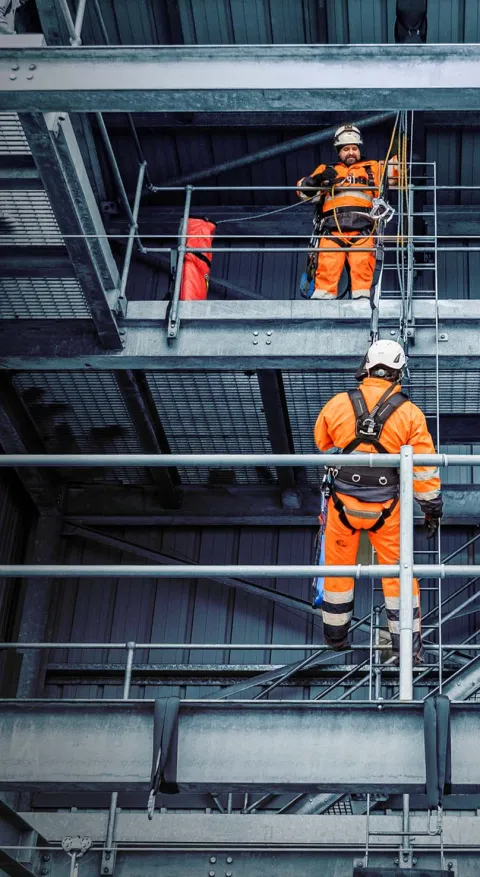
The Gotcha Rescue Range empowering fellow workers to act, not wait!
Why SpanSet developed the Gotcha Kit!
A history lesson of Gotcha with the launch of Gotcha 2 on the 09th Febuary....
The use of harnesses and lanyards as a means of protection for workers at height is now commonplace. However, not all users are aware of the effects that suspension in a harness can cause and the complications from a 1st aid perspective.
Should a worker become suspended in a harness as a result of a fall, then they can be vulnerable to issues that are normally easy to relieve, such as fainting. Also it is quite likely the worker will get injured just prior to or during the fall, especially if they “clatter” their way past obstacles on their way down. The only certainty is that they require 1st aid to assess their situation and that must be done as soon as possible – the clock is ticking!
The problem is that even if the worker is only suspended a few metres away they are out of reach and 1st aid cannot be administered until you recover them.
This is also the same situation for workers in remote locations at height such as on masts, towers or large structures – they need recovering to safety for assessment and treatment if required.
What is certain is that if you are able to recover a suspended worker in time to provide 1st aid, then it will be before any effects from harness suspension occur.
Having identified the issues we can now look at the solutions. A rescue plan should be safe for both the rescuer and casualty, efficient so that they are recovered quickly, suspension time is kept to a minimum and it is understood by all concerned. It is generally considered that reliance upon the emergency services is not a first line of response and in many cases without careful consultation you may find that they do not have the capability that you require.
In many cases the rescue plan can utilise other resources from the workplace, an example being the use of a MEWP. However in a great many cases this will not be possible and a specific rescue kit will be required.
This is why SpanSet developed the Gotcha Kit – Trained staff using a pre assembled Rescue Kit

Our team is excited for the imminent launch of the Gotcha 2 rescue kit. It is the only patented, pre-assembled fall arrest rescue kit which is ready to use and can be deployed straight away. We are now offering rescue training on all kits including the all new Gotcha 2 on sites throughout the UK and in our training centre in Middlewich. The ever popular Gotcha range just got better!'
Rachael Hazeldine Training Business Development Manager.

-
Fellow workers are able to recover the casualty, using remote attachment. The rescuer carries this all out from a point of safety – no need to descend or climb down to the casualty.
-
The casualty can be raised or lowered to the nearest point of safety. No critical time is lost waiting for the emergency services.
-
It is a first line of response, controlled on-site, but does not rule out assistance from the emergency services if available.
-
It only requires the casualties’ original harness and anchor point, so the responsibility placed on the rescuer is kept to a minimum.
-
The Gotcha kit is fully tested and individually proof tested prior to despatch.
-
Training for staff is vital to ensure that if required the whole plan comes together.
-
Pre assembled Rescue kits allow workers to focus on the casualty and take the stress out of the situation.
To support the Gotcha Rescue Range SpanSet offer Training Courses and Equipment Inspection services.
The courses are quality assured to ISO9001 and can be carried out at the Spanset height safety training school in Middlewich or on-site subject to a suitable location.
